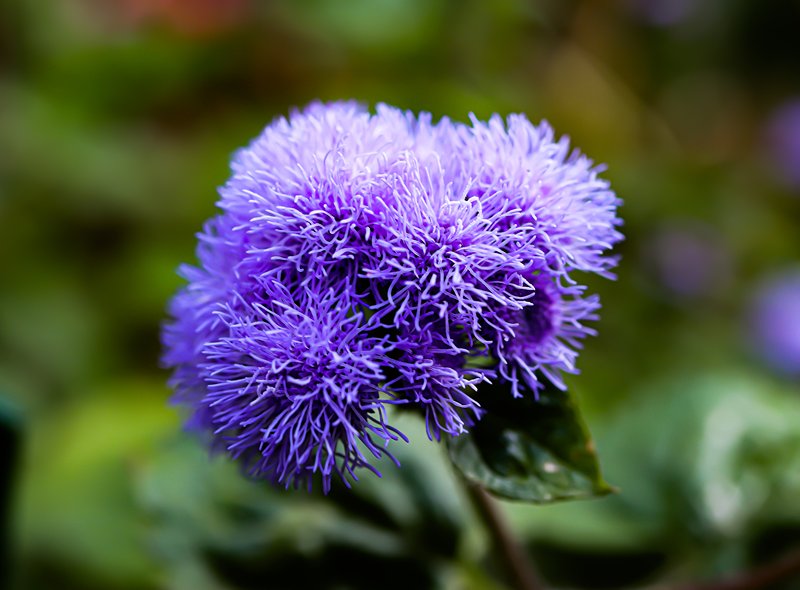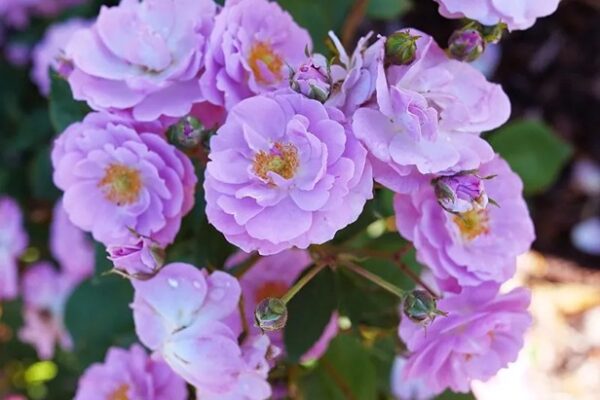Best Anti-Mosquito Plants for Your Garden
Mosquitoes are known to be a major annoyance for people who enjoy spending time outdoors. Anti-mosquito plants are a great alternative to chemical repellents, especially for those who prefer organic and eco-friendly solutions. Certain garden plants are naturally effective at repelling mosquitoes due to the scent of their natural oils. With anti-mosquito plants in your garden, you can enjoy the outdoors without worrying about getting bitten.
Anti-mosquito plants are a natural and effective way to keep pesky insects at bay.
However, simply growing these mosquito-repelling plants may not be enough to effectively deter pests. To maximize the insect-repelling power of these plants, it’s important to release their essential oils. There are a few methods to do this:
Firstly, you can add cuttings from the plants to the grill, especially if the plants are known for their culinary value. This will release the natural oils into the air and keep mosquitoes away while you enjoy your outdoor meals.
Another method is to chop the leaves and stems of the plants and scatter them around your lawn and outdoor living areas. This will create a barrier of mosquito-repelling scent, making it less likely for mosquitoes to come close to you.
Lastly, if you’re pressed for time before heading outdoors, you can simply add some stems of the plants to areas with foot traffic. As you walk, the natural oils will be released with each step, effectively repelling mosquitoes as you move around.
Can Plants That Repel Mosquitoes Be Effective?
Bloodsucking insects like mosquitoes and ticks have the ability to locate their prey by sensing the odors and gases that are emitted by warm-blooded creatures. These insects are attracted to sweat and the carbon dioxide that is given off during breathing. However, certain garden plants that have strong scents can help to mask the scents that these insects use to target their victims, thereby confusing the bugs and protecting us from their bites.
Simply planting these types of plants in your garden may not be enough to completely eradicate mosquitoes. Instead, a more concentrated form of the plant’s scent is often necessary to effectively repel these pesky insects. This can be achieved by burning or crushing the leaves of the plant, which releases the essential oils responsible for producing the odor.
By burning or crushing the leaves of these plants, you can release a more potent and concentrated form of their scent, which will help to repel biting insects like mosquitoes and ticks more effectively. However, it’s important to note that relying solely on plant-based repellents may not be as effective as using chemical repellents, and may not provide complete protection against all types of insects.
1. Marigold
Marigold plants have a pungent odor that is distinctly unique. These annuals are effective in repelling mosquitoes and can be easily grown from seeds. They make an attractive addition to any flowering vegetable garden and may also be effective in repelling other insect pests like nematodes.
The active ingredient in marigolds that gives them their insect-repelling power is pyrethrum, which is also present in many organic insecticides. This makes marigolds a natural and eco-friendly way to deter mosquitoes without using harmful chemicals.
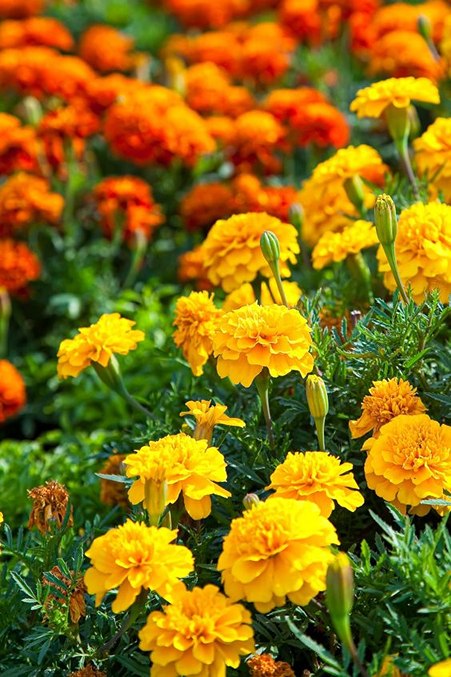
2. American Beautyberry
The Callicarpa americana, also known as the American Beautyberry, is a small shrub that boasts vibrant magenta berry clusters. Although the plant’s tiny white flowers are not particularly visually striking, the bright berries make this shrub an attractive addition to any landscape.
Beautyberry plants belong to the Lamiaceae family, which includes many mint species. When the leaves of this plant are crushed, fragrant oils are released that can effectively repel mosquitoes. Additionally, the berries of the beautyberry plant can last throughout the winter season, which makes them an excellent source of food for songbirds and small mammals.

3. Lantana
Lantana flowers (Lantana camara) are known for their potent effect in repelling mosquitoes. In fact, a scholarly journal called the Journal of the American Mosquito Control Association published a report about it, stating that an extract of lantana flowers in coconut oil can provide up to 94.5% protection against mosquitoes such as Aedes albopictus and Ae. aegypti. The study also found that this preparation can protect users from mosquito bites for an average of two hours. Growing lantana flowers in warm, sunny locations is easy, and they also attract butterflies, adding to their appeal.
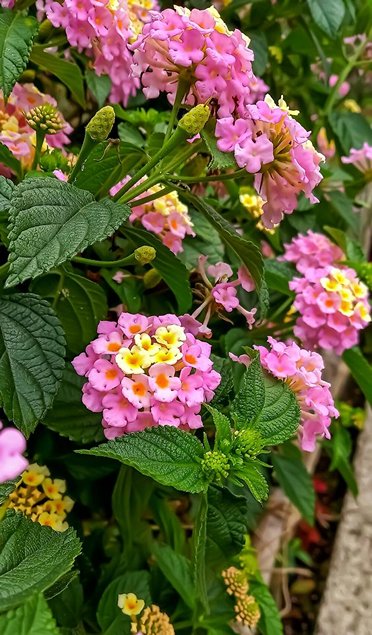
4. Scented Geranium
Scented geraniums are a popular plant species that belong to the Pelargonium family and are known for their aromatic fragrance. These plants come in a wide variety of scents, including lemon, rose, peppermint, and lavender. Lemon-scented geraniums are particularly effective at repelling mosquitoes and other insects due to their high citronella content.
They can be grown as perennials in warmer climates but are typically grown as annuals in colder regions. Scented geraniums are a versatile plant that can be grown in pots, hanging baskets, or in garden beds. They prefer well-drained soil and full sun, but can tolerate some shade.
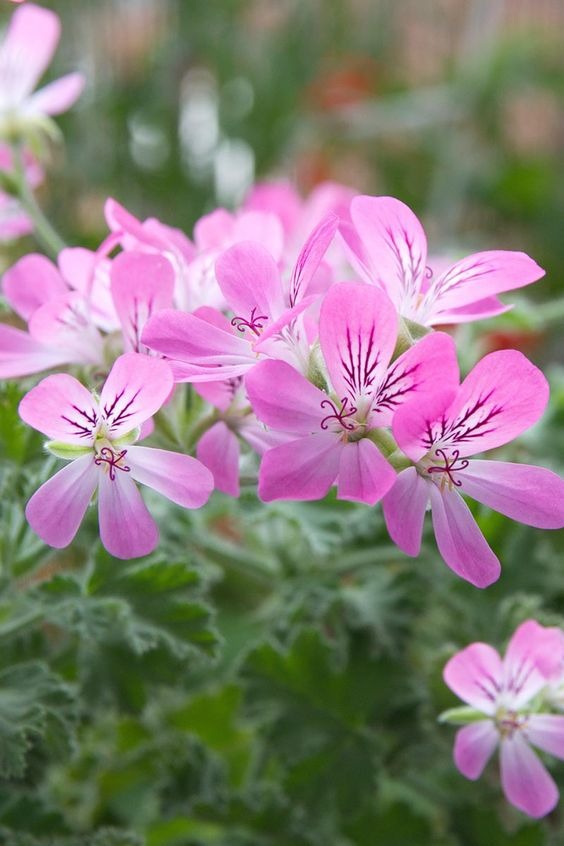
5. Allium
Allium, a group of ornamental onion plants, belongs to the same family as table onions, garlic, and chives. They are perennial bulbs that have a distinctive scent that can repel mosquitoes and other pests. In addition to their insect-repelling properties, Allium plants are visually appealing and add an exotic touch to a garden due to their unusual, globe-shaped flower clusters.
However, Allium plants are mildly toxic, so pet owners should be cautious if their furry friends enjoy chewing on plants. One of the advantages of Allium is that they don’t need to be crushed or rubbed to release their mosquito-repelling scent; they simply repel mosquitoes by being present in the garden. These plants are easy to grow and come in various sizes and colors, making them versatile additions to any garden.
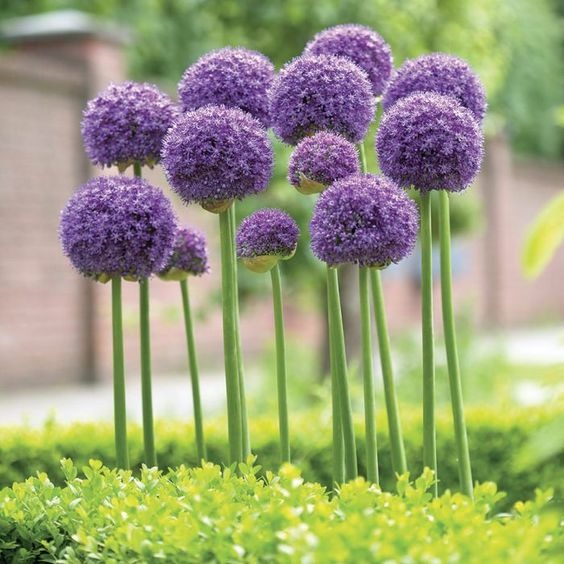
6. Basil
Basil is a versatile herb that can do more than just add flavor to your dishes. It’s also an effective mosquito repellent that can keep these pests at bay. Basil is easy to grow, and it comes in many varieties that differ in appearance, aroma, and flavor. Some of the most popular types of basil include sweet basil, purple basil, lemon basil, and cinnamon basil. However, Thai basil is considered to be the most effective in repelling mosquitoes due to its strong aroma and high concentration of essential oils.
To grow basil, you’ll need a sunny location with well-draining soil. Basil plants are sensitive to cold temperatures, so it’s best to wait until after the last frost to plant them outside. Basil is also a great companion plant for tomatoes, as it can help to repel pests and attract beneficial insects. Additionally, basil is known to have many health benefits, such as reducing inflammation and fighting off infections. So, it’s not just a tasty addition to your meals but also a useful herb to have in your garden.
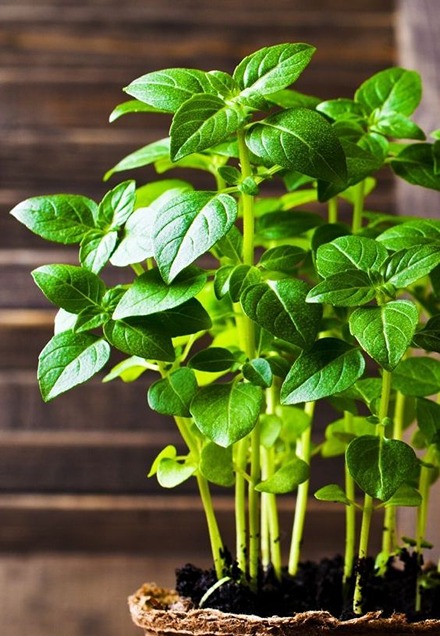
7. Lavender
The lavender plant is not only valued for its beautiful purple flowers, but also for the fragrance of its foliage, which has a sweet, soapy scent. This scent is disliked by mosquitoes, making lavender an effective natural repellent. In addition to enjoying the fragrance in the garden, you can also use lavender by rubbing its leaves on your skin for added protection against mosquito bites.
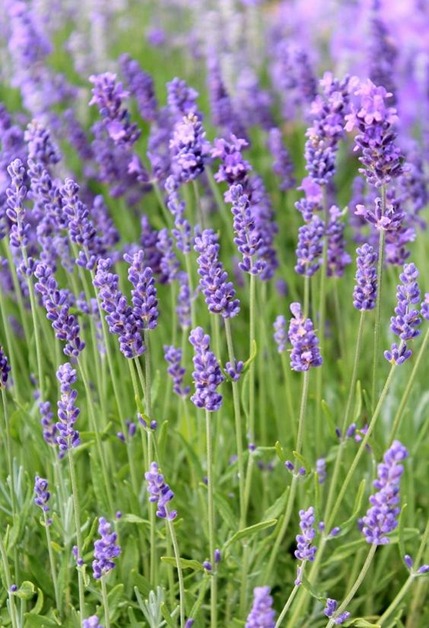
8. Mint
If you want to enjoy a refreshing mint mojito outdoors without the annoyance of mosquitoes, consider growing mint plants. All types of mint, including peppermint and spearmint, have been known to repel mosquitoes, making them a great addition to your garden.
Mint comes in a variety of types, each with its own unique aroma and flavor. For example, the chocolate mint plant has a scent that resembles a candy dish. Mint plants are easy to grow and spread quickly, so you can harvest them frequently to maximize their mosquito-repelling power.
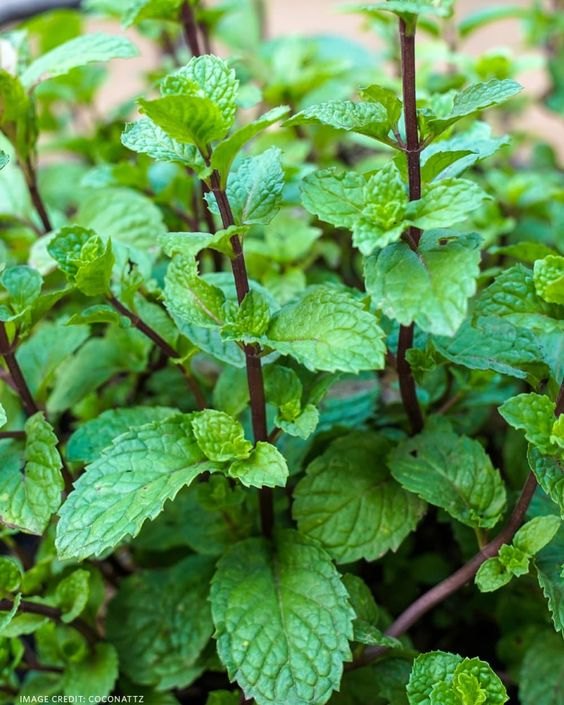
9. Catnip
Catnip, a plant that is known to excite cats, can also be used to protect humans from mosquito bites. Nepeta plants, also known as catmint, are edible for humans as well, so you can enjoy them too.
To create a more comfortable and bite-free outdoor environment, spread some clippings from the plant around your pool or patio. The ‘Walker’s Low’ cultivar is a great option, as it can tolerate dry soils and blooms from late spring to mid-summer.
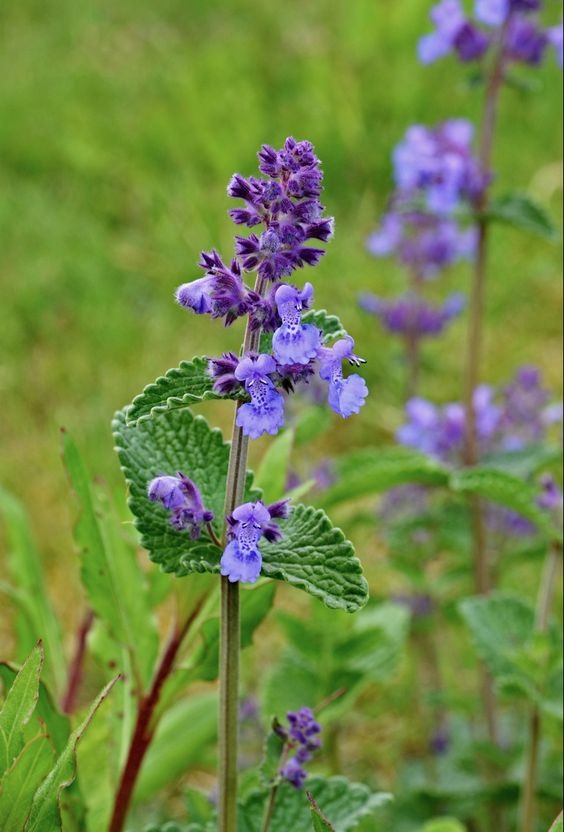
10. Fennel Plant
Fennel plants (Foeniculum vulgare) are usually not given much attention in herb gardens due to their size, but they offer more than just being a mosquito repellent. These feathery plants have a beautiful ornamental quality that rivals any tall grass found in gardens.
The leaves of fennel plants are also a delightful addition to salads and soups, while also serving as a host for swallowtail butterfly caterpillars. Bronze fennel, in particular, is a stunning variety that will readily self-seed and establish an attractive colony in the following season.
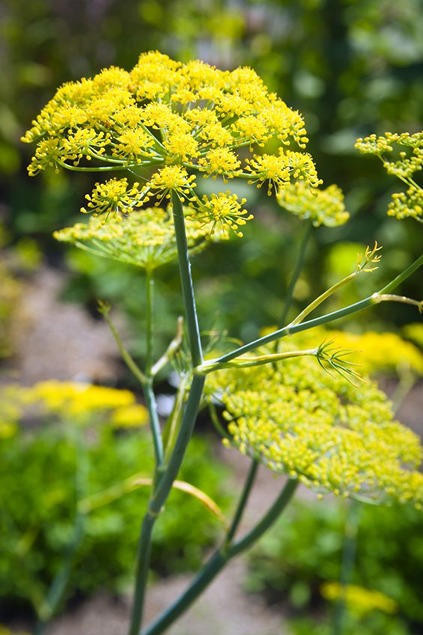
11. Rosemary
The piny scent of Rosemary (Rosmarinus officinalis) has been used for years as a natural pest control method as insects avoid it. If you’re planning an outdoor gathering, try adding some rosemary cuttings to your grill as the smoke can be particularly effective in repelling mosquitoes. Not only will it banish the bugs, but it will also add flavor to your grilled meat. Keep in mind that rosemary requires full sun to avoid needle drop but prefers to dry out between watering.
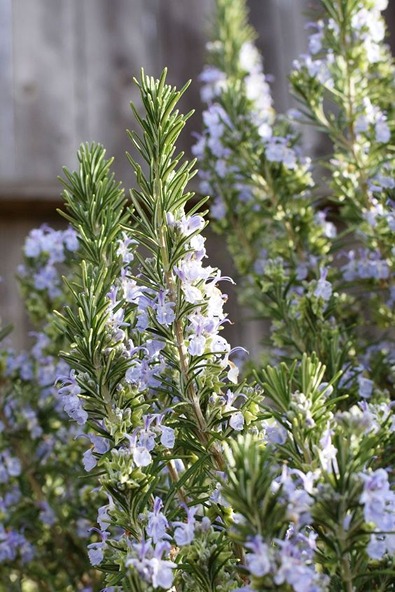
12. Eucalyptus
Eucalyptus plants are known for their unique fragrance and their ability to repel mosquitoes. In addition to being a great mosquito repellent, eucalyptus oil is also used in aromatherapy for its relaxing and de-stressing properties. When grown in a pot, eucalyptus can be a great addition to your patio or balcony garden.
For best results, choose a pot that is large enough to accommodate the plant’s root system, and make sure the soil is well-draining. Eucalyptus plants need plenty of sunlight, so make sure to place your pot in a sunny location. You can also use eucalyptus branches and leaves in floral arrangements or to make wreaths and garlands.
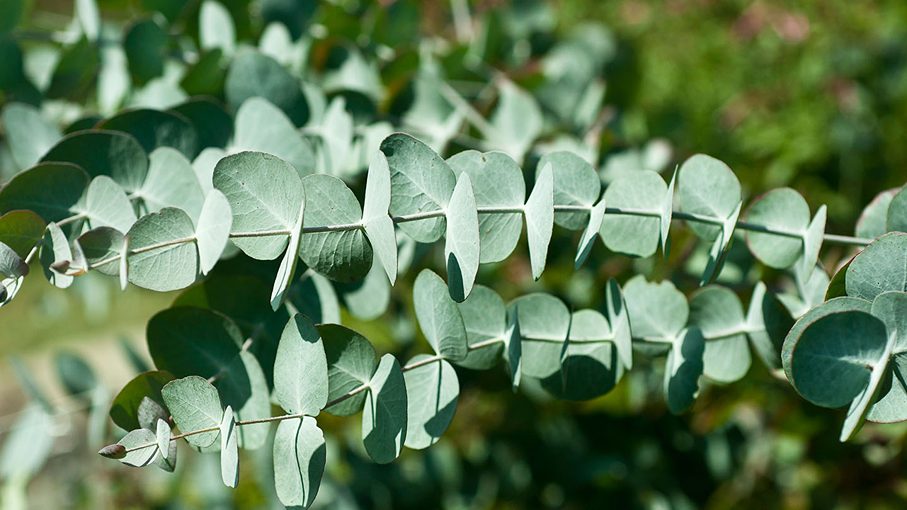
13. Thyme
Thyme, an evergreen herb with tiny, fragrant leaves, is known to have mosquito-repelling properties, making it a great addition to any garden. In addition to its pest-fighting abilities, thyme has many culinary uses and can add flavor to meats, soups, and sauces.
Thyme plants require well-drained soil and full sun, making them an excellent choice for Mediterranean climates. Planting thyme in between stepping stones is a clever way to add a fragrant touch to your garden while also releasing its mosquito-repelling oils with every step. Thyme plants can also attract pollinators such as bees and butterflies, making them a beneficial addition to any garden.
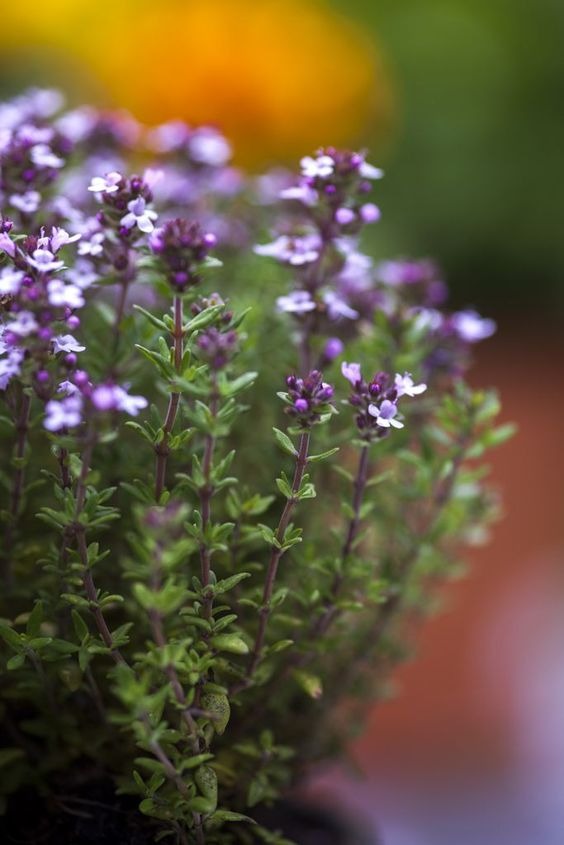
14. Bee Balm
Bee balm, also known as Monarda spp., is a perennial plant that is commonly used to attract bees and butterflies to the garden. However, it has also been found to be a natural mosquito and insect repellent. Crushing a few leaves of bee balm will release the strong, aromatic oils that help keep mosquitoes away. This plant is a great addition to any garden or landscape, and is easy to grow in full sun or partial shade.
Bee balm comes in a variety of colors, including pink, red, purple, and white, making it an attractive and functional plant for any outdoor space. It prefers moist, well-drained soil and can grow up to 4 feet tall, making it a great option for adding height to a garden bed or border. Additionally, bee balm has medicinal properties and can be used to make tea, which is known for its calming effects.
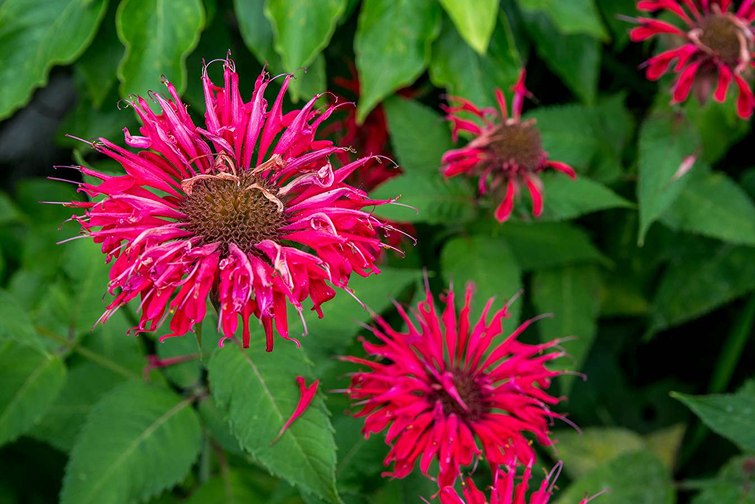
15. Lemongrass
Cymbopogon citratus, commonly known as lemongrass, has natural oils that produce a pleasant lemon scent that is even better than real lemons. In some Asian cultures, lemongrass is a staple ingredient in cooking, and it is also used in perfumes to provide a citrus note.
While lemongrass is a tender plant that cannot survive the winter below zone 9, it grows quickly in container culture. To take advantage of its mosquito-repelling properties and pleasing aroma, coarsely chop the strappy leaves of the plant and scatter them around your deck during your next gathering.
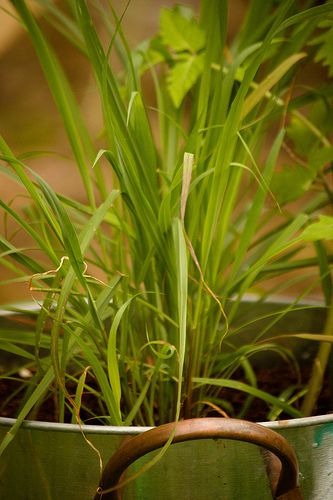
16. Ageratum Floss Flower
Ageratum, also known as floss flower, is a flowering plant that can repel mosquitoes by producing a chemical called coumarin. By simply growing in the garden or in pots, ageratum can help keep mosquitoes at bay. However, it is important to note that this same chemical makes the plant toxic to pets, so it should be planted with caution around pets. While ageratum was traditionally used as a low bedding plant, there are now cultivars, such as the ‘Blue Horizon’ variety, which can grow up to 2 feet tall or more, giving gardeners more options for incorporating them into their landscaping.
